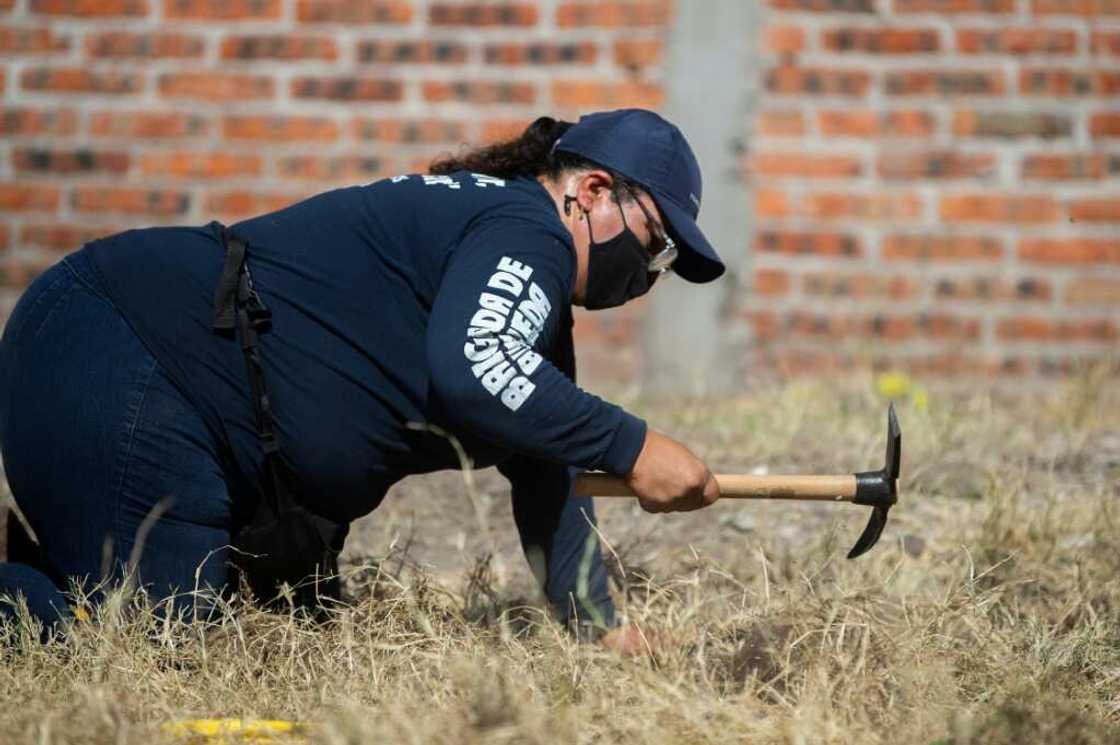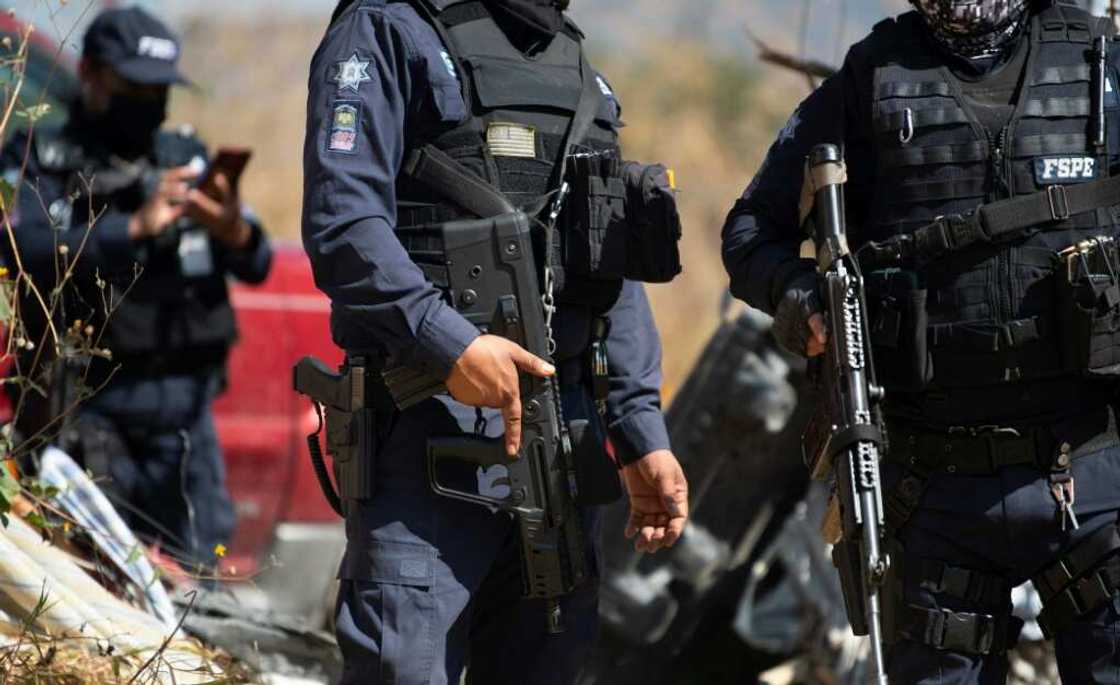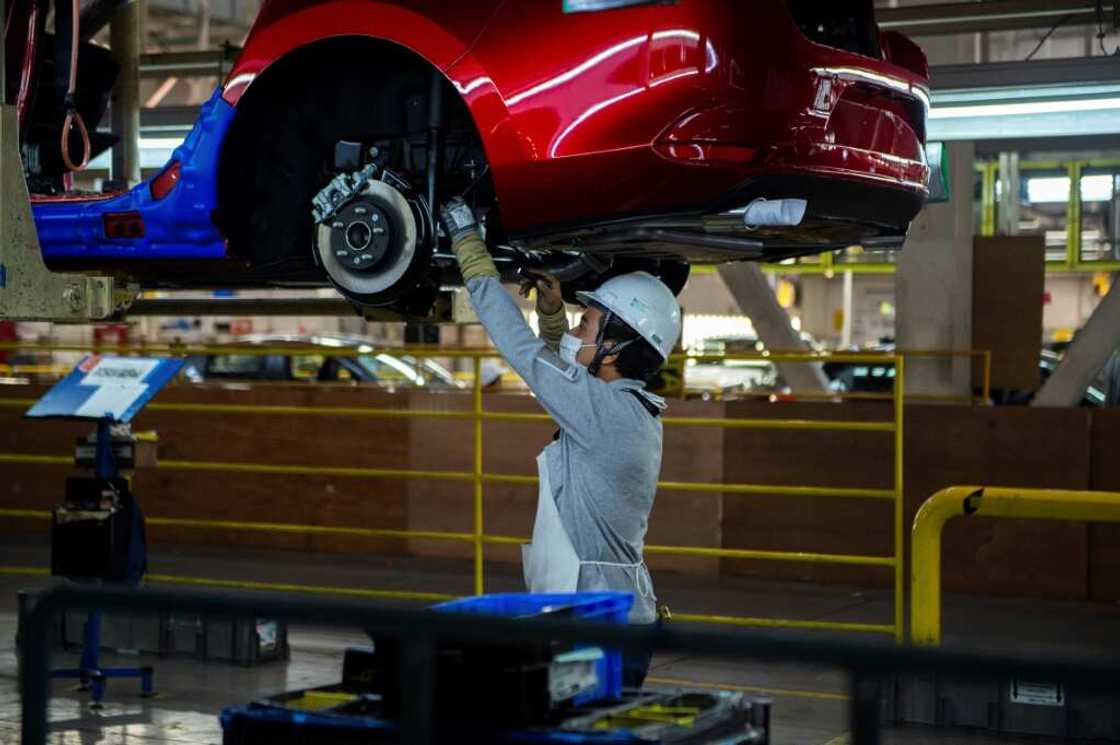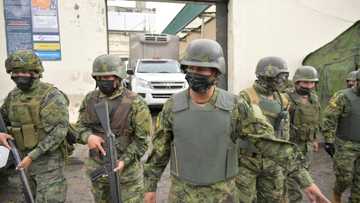Bloodshed, prosperity meet in Mexico's most violent state

Source: AFP
PAY ATTENTION: Click “See First” under the “Following” tab to see Legit.ng News on your Facebook News Feed!
As applause rang out at a nearby international arts festival, Bibiana Mendoza unearthed human remains from a clandestine grave in a Mexican region where prosperity, culture and cartel violence converge.
The 32-year-old woman, who is looking for her missing brother, arrived at the site in the town of Irapuato in Guanajuato state after residents reported seeing a dog carrying a human hand in its mouth.
"While people from all over the world were celebrating the Cervantino festival, we were digging up bodies, and at the same time I thought it was useless because they were burying more people elsewhere," said Mendoza, founder of a women's collective searching for missing persons.
Since that day in late October, they and a group of forensic experts have exhumed 53 bags of remains that the authorities are trying to identify, Mendoza said.
Around 300 victims of gang violence have been found dead in similar circumstances in recent months in Guanajuato, an industrial hub home to factories of foreign auto giants.
Irapuato, located one hour from the Guanajuato state capital, ranks number two among Mexican municipalities where people feel the most unsafe, according to official data.
PAY ATTENTION: Subscribe to Digital Talk newsletter to receive must-know business stories and succeed BIG!

Source: AFP
Cartel turf wars have given Guanajuato the unenviable title of Mexico's most violent state, with more than 2,400 murders from January to September of this year -- almost 10 percent of the national total.
Nearly 3,000 more people disappeared in the same period.
Despite the bloodshed, the once-peaceful state, home to 6.1 million people, is a major tourist destination.
Its colonial-style capital as well as the picturesque city of San Miguel de Allende attract thousands of foreigners each year.
The violence mostly happens out of sight of the tourist trail.
On November 9, nine people were massacred in a bar in Apaseo el Alto, just over an hour away from Irapuato.
Apart from some blood stains on the sidewalk and discarded security tape, life in the municipality continued afterward as if nothing had happened.
Images in the local press showed bodies piled up in pools of blood, broken glass and bottles, and a message from a cartel claiming responsibility for the attack.
Five massacres in Guanajuato have left 50 dead in the past five months, shocking residents who are no strangers to violence.
"Seeing bodies lying in the streets with messages is something new for us," Mendoza said.
Industrial hub

Source: AFP
Mazda's plant in Salamanca -- its largest outside of Japan -- runs like clockwork producing around 815 vehicles a day, some for export.
Toyota, Honda and General Motors also have factories in the state.
Transport infrastructure, a supply network and skilled labor are some of the attractions of Guanajuato, which has the sixth-highest economic output of Mexico's 32 states.
Industry figures say they have seen no impact from the violence on companies' activities and expansion plans.
"We haven't heard that any investment has been cancelled or cut due to insecurity," said Hector Rodriguez, local head of the Coparmex employers' association.
"Chickens don't stop laying eggs because they're afraid of coyotes," he added.
Crime in the region is the product of a fierce turf war between the Jalisco New Generation and Santa Rosa de Lima cartels.
Guanajuato is an important corridor along drug smuggling routes between Pacific ports and the United States, according to security expert David Saucedo
"It's part of the fentanyl and cocaine routes," he said.
The gangs finance their war with local drug sales and battle for control of nightlife venues, Saucedo added.
Nine out of 10 murders in the state are related to drug dealing, according to Guanajuato security official Sophia Huett.
Although the state authorities carry out arrests, it will not be enough if the cartels are not tackled at the national level, she said.
Exhausted by her fruitless search, Mendoza wants no more excuses.
"I hate hearing the (state) governor say that he is going to deliver a safer Guanajuato. I hate hearing the president (Andres Manuel Lopez Obrador) say that what is happening is not his fault," she said.
Source: AFP






